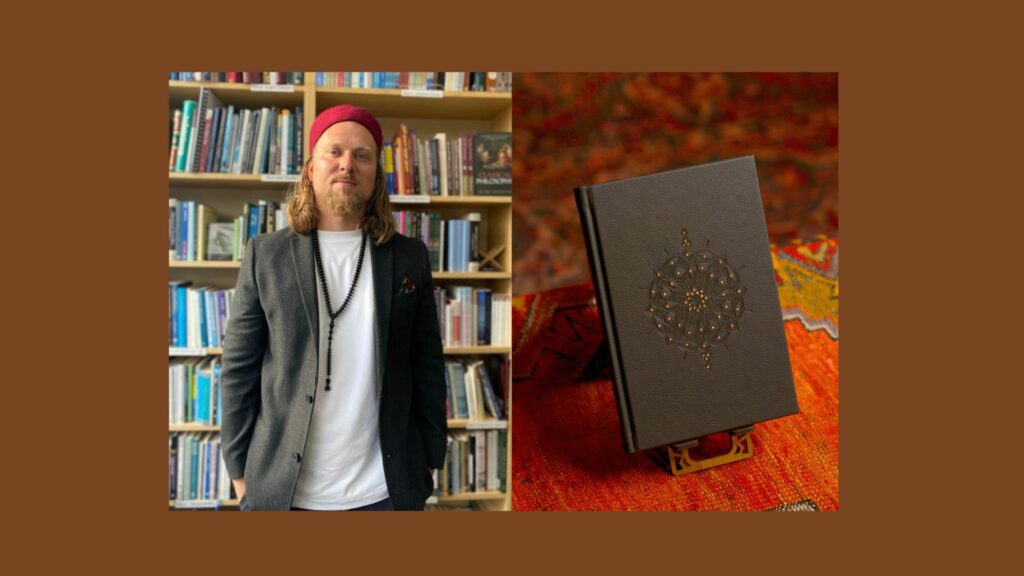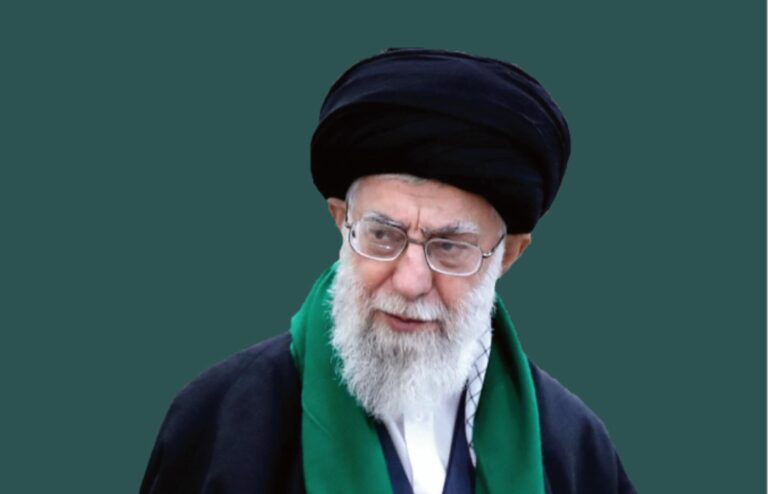On 16 May, IHRC held a poetry with reading with Baraka Blue as part of his UK tour promoting his latest book, The Art of Remembrance.
WATCH THE POETRY READING:
This event was chaired by author and poet, Ustadh Rakin Niass.
Baraka Blue commenced with a dua (supplication) and his famous poem ‘Love & Light’, encouraging the audience involved by saying ameen after every dua.
Baraka discussed the Prophet Muhammad (pbuh) and how we relate to him from the outward and inward descriptions of him. Some of the most beautiful descriptions he found were from Imam Ghazali’s Iḥyāʾ ʿulūm al-dīn, which Baraka described as an encyclopaedia. He quoted Imam Ghazali by sharing that he said “in our time, the Prophet conveyed (pbuh) a way that was being deeply transformed and illuminated by the light of divine unity and experiencing an opening until you actually have an unveiling of the light of Allah in your heart. That is what knowledge means. The prophet said the scholars are the inheritors of knowledge, the knowers and the ones who know Allah.” Baraka continued, “you don’t have to know a bunch of fiqh to know Allah. Even fiqh, etymologically means ‘deep understanding’ so it is holistic, the outer laws are important. Imam Ghazali sought to write 40 volumes because he said, ‘Islam is on its deathbed and the scholars have killed it’, because people focus on the outer dimension and have lost the inner reality.”
Baraka went on to highlight how Imam Ghazali talks about every aspect of life, in that it is not only is prayer and fasting that are Islam. Imam Ghazali has a book about brotherhood because how one relates to their brothers can be one’s spiritual path. Baraka said, ‘[there is] a book on marriage, because how you relate to your spouse is your spiritual path, there is a book on livelihood because what you choose to do and how you to your money, that is your spiritual path.” Right in the centre of Ghazali’s encyclopaedia is the 20th book; Baraka asked the audience, “what do you think the book is about? It is about the character of the prophet (pbuh), because he is the embodiment of the way and his character was the Qur’an.”Baraka said, “A friend of mine is studying at Al-Azhar and he said he really wants to study tafsir and understand the Qur’an. He asked a shaykh for a book recommendation to focus on and the shaykh brought down a book and it was the seerah of the Prophet (pbuh)”, highlighting that much of understanding the Qur’an is through knowing the Prophet (pbuh).
Baraka’s poem ‘Beloved’ was inspired by Ghazali’s aforementioned book. He asked the audience to close their eyes and imagine the Prophet (pbuh) saw while he recited the poem ‘Beloved’.
Baraka discussed how the Prophet (pbuh) had a very good sense of humour. “If you find someone who they’re supposed to be on the sunnah and they don’t have a good sense of humour, they have some work to do to follow the sunnah.”
Baraka talked about how much the Prophet (pbuh) loved to smile, and he did not like frivolity to the point where people were forgetful of Allah, “that is the distinction. Because there were people who would just laugh and joke to the point where they were not conscious of Allah and he said to them, ‘if you knew what I knew, you would laugh little and weep much’. So there are those Hadith, but he was also known to be the one who was always smiling. And when he smiled you could see his molars.”
Ustadh Rakin asked Baraka what the inspiration was behind the name of the book. Baraka said, “This book is called the art of remembrance and the Prophet (pbuh) taught us to be in a constant state of remembrance. Sometimes when we have difficult experiences or annoyances we think like, ‘I can’t wait to finish work so I can go home and have my religious life start’. But your religious life is your boss that’s annoying you, its the difficult people around you, this is the path. The whole thing is to be in a state of remembrance the whole time. That was the Prophet (pbuh)”.
Baraka shared a little about his interest in religion and decision to embrace Islam. He emphasised the importance of approaching Islam as an art rather than a science. After Baraka was muslim for 10 years, he was in Istanbul and his father came to visit and it was his father’s first time in a Muslim country. He took his father to the Blue Mosque Sultan Ahmed, and together they experienced the breathtaking vastness, the light, the subtleties, seeing people praying, and the profound experience of being in that space. He stood next to his father and Baraka said he knew his father understood more about Islam in that moment than from him talking about Islam for 10 years, illustrating that this is what art can do.
Baraka recited the poems, ‘The Art of Remembrance’ and ‘To Mothers’. During the discussions with Ustadh Rakin and Q&A with the audience, Baraka talked about parents, Shaykh Yahya Rhodus, his travels, his process in his writing, how important the teachings of tasawuf are in his day-to-day life, the crisis of masculinity, the need for tarbiya and initiation into manhood for young men and women, and much more.






